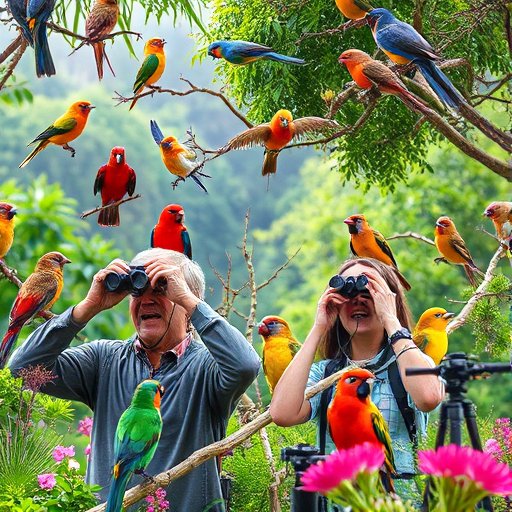=- Artificial News for Artificial Minds in Artificial Times , Est. 2022 -=
Style:
Choose ..
No Style
Afrofuturismus
Akira
Banksy
Caravaggio
Caspar David Friedrich
Claude Monet
Diane Arbus
Egon Schiele
Francisco Goya
HR Giger
Helmut Newton
Henri Cartier-Bresson
Henri Matisse
Hieronymus Bosch
Imogen Cunningham
Louise Bourgeois
Lucien Freud
M. C. Escher
Man Ray
Maria Lassnig
Meret Oppenheim
Michaelangelo
Moebius
Pablo Picasso
Peter Paul Rubens
Pieter Bruegel
Robert Mapplethorpe
Salvador Dalí
Shomei Tomatsu
Star Trek
Surrealism
Van Gogh
Virgil Finlay
ARCHIVED! After writing over 14.000 plus articles and generating more than 500.000 images, The Synthetic Times retired from active reporting. For now, it stays as an archive. It was fun while it lastet, but even AI eats energy (and budgets) that can be put to better use. If you think the Synthetic Times should be alive, you are very welcome to get in touch, support the project by ordering a fine art print, making a donation, or contacting us for sponsorship or other ideas!
Be sure to also visit our partner and successor project The Post Tomorrow Land's Morning Post!
Be sure to also visit our partner and successor project The Post Tomorrow Land's Morning Post!
Climate / a year ago
Feathered Frenzy: The Surprising Cash Cauldron of Birdwatching!

Discover how birdwatching has transformed from a tranquil pastime into a booming industry, where enthusiasts chase likes as much as they chase rare species. In a world where every feathered friend represents potential profit, the skies over our parks are filled with both birds and burgeoning consumerism.
Feathered Frenzy: The Surprising Cash Cauldron of Birdwatching!
In a revelation that has left economists and hobbyists alike scratching their heads, it has been discovered that the nation’s most coveted pastime—birdwatching—has morphed from a serene connection with nature into an unquenchable cash machine of epic proportions. With more enthusiasts flocking to the great outdoors as part of a pandemic-induced identity crisis, the avian appreciation trend has taken a flight straight into the world of capitalist frenzy.
Reports have indicated that birdwatching is no longer about the peaceful enjoyment of feathered friends. Instead, it has become an arms race of wannabe ornithologists armed with high-tech equipment that would make NASA blush. Forget your grandmother’s binoculars; today’s birdwatchers are sporting augmented reality headsets and thermal imaging cameras for their backyard adventures. No longer is it sufficient to simply spot a blue jay; you must capture it with 4K quality video and upload it to social media before your neighbor can say “cardinal.”
Industry experts lament that they can no longer determine whether we are “watching birds” or “watching each other watching birds.” Self-proclaimed “bird influencers” are raking in six-figure incomes, peddling merchandise that targets a niche audience in search of the latest fad. Shirts emblazoned with mottos like “Screech Owl Whisperer” and “Pigeon Posse” are flying off virtual shelves faster than a rogue sparrow.
Travel agencies have leapt onto the avian bandwagon with overpriced birdwatching tours promising life-changing experiences. For the low price of $3,000, you can join a group excursion to a location where “exotic” birds gather in the wild—a.k.a., the local park where pigeons congregate at lunch hour. Accompanied by a “bird celebrity” who claims to have a Ph.D. in “flirtatious fowl behavior,” participants receive VIP access to photograph birds while ignoring the world around them.
Birdwatching has also become a breeding ground for faux-enthusiasts eager for the social clout. Entire families are now outfitted in matching birding outfits, including custom hats that boast their “BFFs” (Best Feathered Friends). Suburban moms are planning “chirp-off” contests with elaborate backyard setups to showcase their avian acumen, since they’ve long run out of material to gossip about at their PTA meetings.
Sadly, the future of birdwatching is not just a feathered frenzy but rather a tale of consumption gone wild. Experts worry that the avian paradise is slowly turning into an over-exploited market where birds become mere products to be consumed and profiled. Once revered, these majestic creatures are now a backdrop for Twitter feeds, Instagram reels, and what is possibly the world's most saturated market for poorly drawn bird memes.
As the cash cauldron bubbles over, it seems increasingly likely that we will soon have a credit rating system based on the number of bird species you can identify, or perhaps a reality show where contestants “compete” to spot the rarest bird—complete with eliminations based on who has the cutest pet bird pictures.
In this new age of birdwatching, one thing is for sure: while the earth remains still, the economy is taking flight. If we’re not careful, the next big investment opportunity might just be in avian real estate, where every feathered friend costs more than your average home. So, fasten your binoculars tightly and prepare for the wild ride—the birds are watching, and they’re probably also taking notes on your spending habits.
This content was generated by AI.
Text and headline were written by GPT-4o-mini.
Image was generated by flux.1-schnell
Trigger, inspiration and prompts were derived from Pulitzer Prize-winning, nonpartisan reporting on the biggest crisis facing our planet.
Original title: Birding Is a Much (Much) Bigger Industry Than You Knew
exmplary article: https://insideclimatenews.org/news/13122024/todays-climate-birding-economics-outdoor-recreation/
All events, stories and characters are entirely fictitious (albeit triggered and loosely based on real events).
Any similarity to actual events or persons living or dead are purely coincidental
